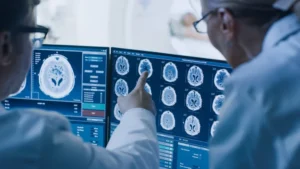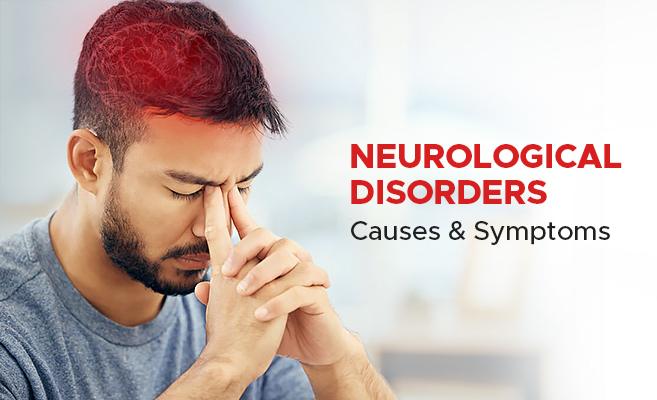Introduction
Neurological diseases are among the most complex and life-altering conditions that affect the human body. They impact the brain, spinal cord, and nerves—systems that control every function from movement and memory to emotions and vital bodily processes. Millions of people worldwide suffer from neurological disorders like Alzheimer’s, Parkinson’s, epilepsy, and multiple sclerosis. Understanding these conditions is key to managing them effectively.
DoctorHub360.com has become a trusted digital platform offering comprehensive neurological resources. From expert advice to AI-assisted diagnosis and teleconsultation, it provides accessible and reliable tools for both patients and healthcare professionals. As neurological issues rise globally, platforms like DoctorHub360.com are vital for educating patients, promoting early detection, and guiding treatment options. In this article, we’ll explore the major types of neurological diseases, their symptoms, causes, diagnostic processes, and the technological innovations DoctorHub360.com brings to neurological healthcare.

What Are Neurological Diseases?
Neurological diseases are medical conditions that affect the nervous system. This includes the central nervous system (brain and spinal cord), peripheral nervous system (nerves), and autonomic nervous system (which controls involuntary functions like breathing and heartbeat). These disorders may be caused by structural, biochemical, or electrical abnormalities in the brain, spinal cord, or nerves.
There are over 600 recognized neurological diseases, ranging from common conditions like migraines and epilepsy to rare ones such as Huntington’s disease or amyotrophic lateral sclerosis (ALS). The effects can be temporary or chronic, mild or severe, and sometimes progressive.
Some neurological disorders are inherited, while others result from injury, infection, or lifestyle factors. Accurate diagnosis and prompt treatment can improve the quality of life for many patients. Platforms like DoctorHub360.com aim to bridge the gap between patients and neurologists, offering digital tools that support better care and awareness.
Types of Neurological Diseases
Neurological diseases can be classified into several categories based on the area of the nervous system they affect or their underlying cause:
1. Neurodegenerative Diseases
These conditions cause the gradual degeneration of nerve cells. Common examples include:
-
Alzheimer’s disease
-
Parkinson’s disease
-
Huntington’s disease
-
Amyotrophic Lateral Sclerosis (ALS)
2. Cerebrovascular Diseases
These affect blood flow to the brain, often resulting in brain damage. They include:
-
Stroke
-
Transient Ischemic Attack (TIA)
-
Vascular dementia
3. Demyelinating Diseases
These involve damage to the protective covering (myelin sheath) of nerve fibers:
-
Multiple Sclerosis (MS)
-
Neuromyelitis optica
4. Functional Neurological Disorders
These are conditions where the nervous system appears normal, but functions abnormally:
-
Epilepsy
-
Tourette syndrome
-
Non-epileptic seizures
5. Infectious Neurological Diseases
These are caused by bacterial or viral infections:
-
Meningitis
-
Encephalitis
-
Post-viral syndromes
6. Trauma-Related Disorders
These result from injuries to the brain or spine:
-
Traumatic Brain Injury (TBI)
-
Spinal cord injury
-
Post-concussion syndrome
Causes and Risk Factors
The causes of neurological diseases vary widely but can include:
-
Genetic mutations: Some disorders are inherited, like Huntington’s disease.
-
Infections: Viruses or bacteria can trigger inflammation or damage.
-
Autoimmune responses: Diseases like MS arise from the body attacking its own tissues.
-
Trauma: Head or spinal injuries can lead to lasting neurological problems.
-
Tumors: Brain or nerve tumors can disrupt normal function.
-
Vascular problems: Poor blood flow can deprive the brain of oxygen, leading to stroke.
-
Toxins: Exposure to heavy metals or harmful chemicals may damage nerve tissue.
-
Lifestyle factors: Smoking, lack of exercise, or poor diet increase the risk for stroke and other conditions.
Understanding the risk factors is essential for prevention. DoctorHub360.com educates users on modifiable risks and guides lifestyle changes to reduce susceptibility.

Symptoms of Neurological Diseases
Symptoms depend on the specific disorder and the part of the nervous system involved. Common signs include:
-
Cognitive Issues: Memory loss, confusion, difficulty concentrating
-
Motor Problems: Muscle weakness, tremors, spasms, or paralysis
-
Sensory Disruptions: Tingling, numbness, pain, or loss of sensation
-
Coordination Difficulties: Problems with balance or walking
-
Speech & Language Problems: Slurred speech, inability to understand or express words
-
Seizures: Uncontrolled electrical disturbances in the brain
-
Headaches: Chronic or severe migraines
-
Mood Disorders: Anxiety, depression, personality changes
Some conditions may also cause vision problems, incontinence, or sleep disturbances. Early symptom recognition is key to effective management.
Diagnosis and Testing
Neurological disease diagnosis often requires a combination of tools, including:
-
Neurological Examination: Tests of reflexes, coordination, muscle strength, and mental status
-
Brain Imaging: MRI or CT scans can reveal tumors, strokes, or structural issues
-
Electrophysiology: EEG for brain activity, EMG for muscle and nerve function
-
Blood Tests: To detect infection, autoimmune markers, or toxins
-
Spinal Tap (Lumbar Puncture): To analyze cerebrospinal fluid
-
Genetic Testing: For hereditary diseases
DoctorHub360.com allows users to connect with specialists for digital consultations, second opinions, and access to test result interpretations, all from the comfort of their home.
Treatment Options
While some neurological conditions are curable, others require lifelong management. Common treatment approaches include:
-
Medication: Anti-seizure drugs, pain relievers, antidepressants, and disease-modifying therapies
-
Surgery: For tumors, deep brain stimulation (Parkinson’s), or shunt placement
-
Physical Therapy: Helps improve movement and prevent disability
-
Occupational Therapy: Teaches coping strategies for daily tasks
-
Speech Therapy: Assists with language and communication
-
Cognitive Behavioral Therapy (CBT): For anxiety, depression, or trauma-related conditions
-
Lifestyle Management: Diet, exercise, smoking cessation, and stress reduction
DoctorHub360.com integrates personalized care planning, reminders, and remote tracking tools to ensure consistent progress and follow-up.
Doctorhub360.com Neurological Diseases: Expert Insights & Care
How DoctorHub360.com Is Transforming Neurological Care
DoctorHub360.com combines technology and healthcare expertise to create a seamless user experience for patients with neurological diseases. Here’s how:
-
AI-Powered Diagnostics: Offers preliminary assessments and symptom analysis using machine learning.
-
Teleconsultation: Connects users with certified neurologists for virtual visits.
-
24/7 Access to Experts: Through the mobile platform or web dashboard.
-
Health Record Management: Patients can upload, track, and share their reports digitally.
-
Smart Monitoring Tools: Wearable integrations and symptom trackers help in real-time care.
This approach empowers patients with education, data, and medical access—drastically improving outcomes for those dealing with neurological issues.
High-Risk Merchant Accounts at HighRiskPay.com
Conclusion
Neurological diseases can be overwhelming, but knowledge, timely intervention, and support can make a significant difference. Whether it’s Alzheimer’s, epilepsy, or a stroke-related complication, understanding the condition is the first step toward better management. With the increasing role of technology in healthcare, platforms like DoctorHub360.com are proving to be game-changers.
By offering diagnostic support, teleconsultations, and AI-based tools, DoctorHub360.com bridges the gap between patients and specialists. It empowers individuals to take control of their health journey through education, accessibility, and personalized care plans. As neurological disorders become more prevalent, digital platforms will continue to shape the future of neurological healthcare—making diagnosis faster, treatment more efficient, and outcomes more positive.
